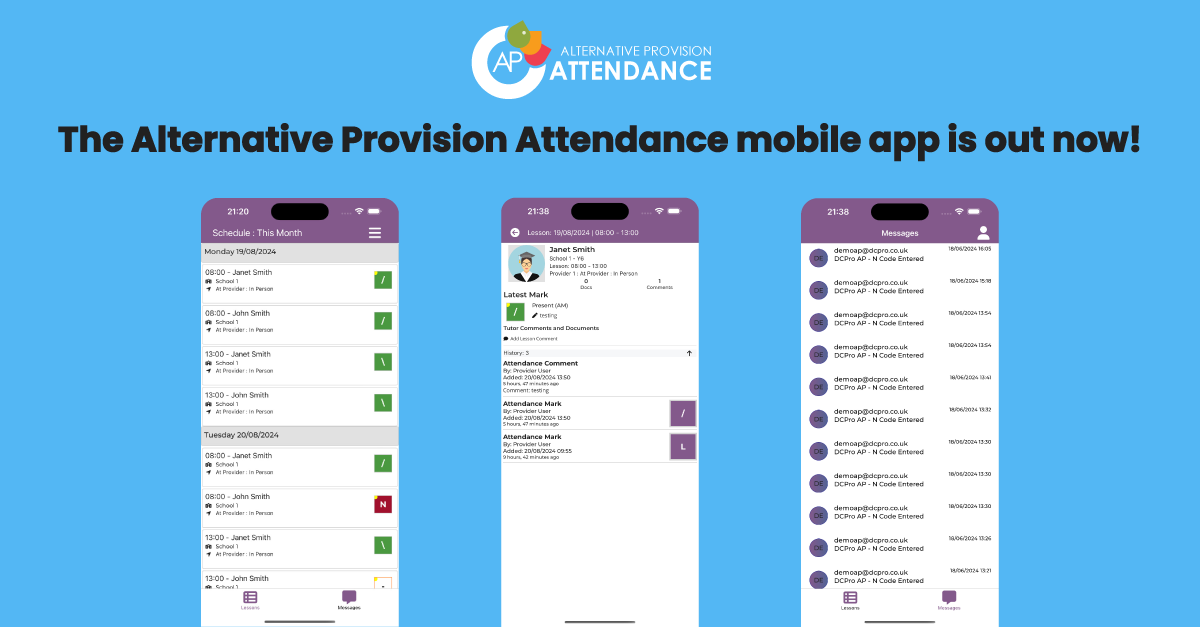Today, we are announcing the release of the mobile app for the new DCPro Alternative Provision Attendance system!
Designed so that tutors and providers can easily manage their lesson schedule, enter attendance, and lesson activity and communicate using the built-in messaging system.
Real-time updates allow all stakeholders to monitor students’ attendance and activity in the app and the website.
The app is available for both IOS and Android devices and can be downloaded now from your respective app store.
More features will be coming in the near future.
Curious to learn more? Click here.




